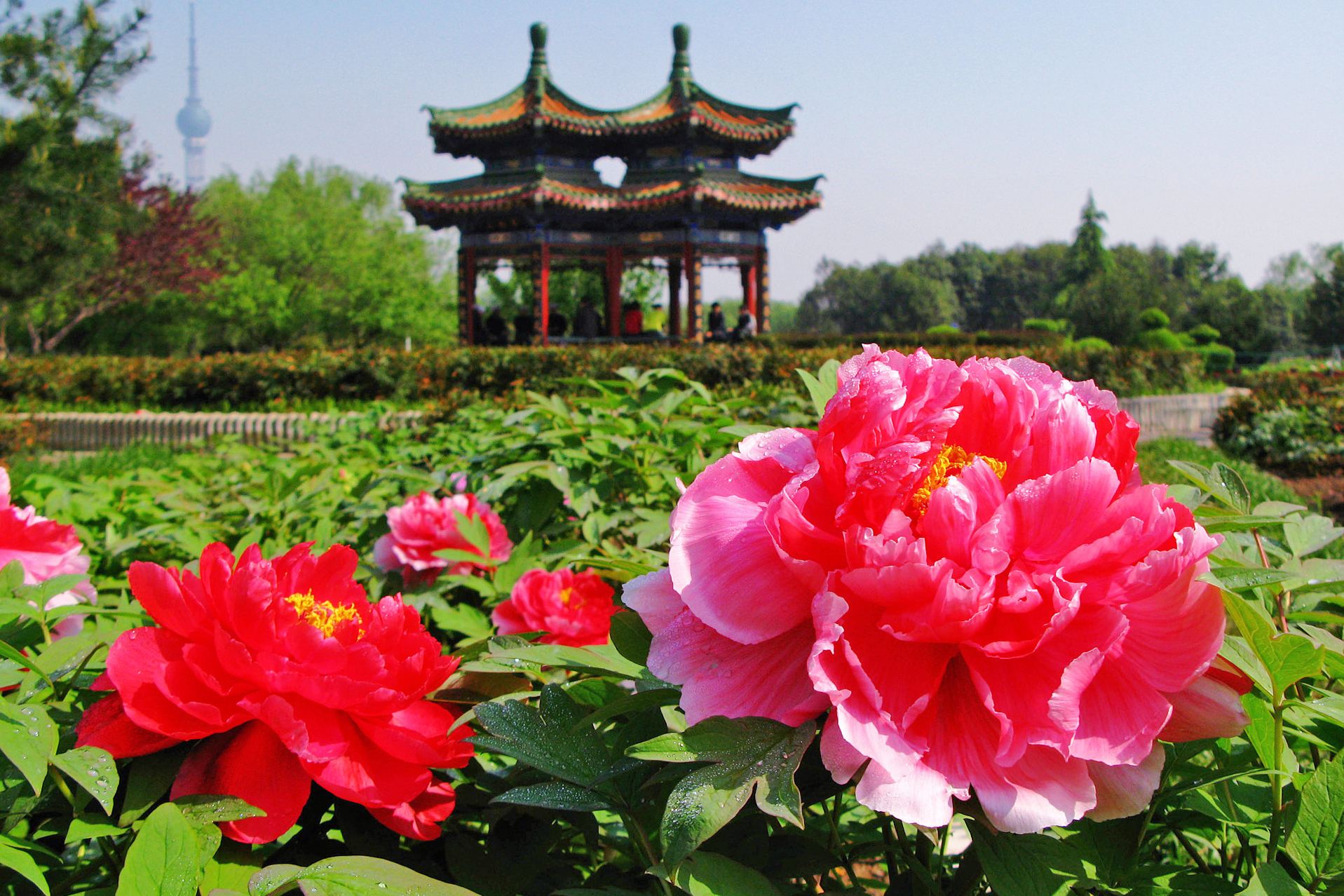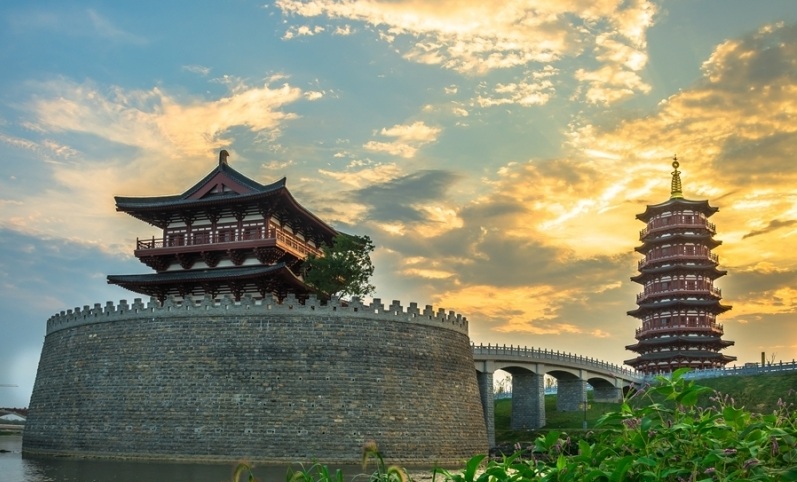24 Hours Hotline: +86 137-3541-1378
Email:[email protected]
24 Hours Hotline: +86 137-3541-1378
Email:[email protected]

The city of Luoyang is certainly not the most attractive place in China, but with its long history as an ancient capital of China, the ongoing peony festival, the Longmen Grottos and the nearby Shaolin Temple, it has a charm of its own that no other city rivals.
Luoyang has a very long history, having been founded back in 1,200 BC. For long periods of early Chinese history Luoyang was the capital of China, right up to the 10th century, when the Northern Song Dynasty moved the capital to Kaifeng.
Background & History
In the 1136 BC a settlement named Chengzhou was constructed by the Duke of Zhou for the remnants of the captured Shang nobility. The Duke also moved the Nine Tripod Cauldrons to Chengzhou from the Zhou Dynasty capital at Haojing. A second Western Zhou capital, Wangcheng (also: Luoyi) was built 15km west of Chengzhou. Wangcheng became the capital of the Eastern Zhou Dynasty in 771 BC. The Eastern Zhou Dynasty capital was moved to Chengzhou in 510 BC. Later, the Eastern Han Dynasty capital of Luoyang would be built over Chengzhou. Modern Luoyang is built over the ruins of Wangcheng, which are still visible today at Wangcheng Park.China.org.cn, 2009
In 25 AD, Luoyang was declared the capital of the Eastern Han Dynasty on November 27 by Emperor Guangwu of Han. For several centuries, Luoyang was the focal point of China. In AD 68, the White Horse Temple, the first Buddhist temple in China, was founded in Luoyang. The temple still exists, though the architecture is of later origin, mainly from the 16th century. An Shigao was one of the first monks to popularize Buddhism in Luoyang.
The ambassador Banchao restored the Silk Road in Eastern Han Dynasty and this has made the capital city Luoyang the start of Silk Road
In 166 AD, the first Roman mission, sent by "the king of Da Qin [the Roman Empire], Andun" (Marcus Aurelius Antoninus, r. 161-180 AD), reached Luoyang after arriving by sea in Rinan Commandery in what is now central Vietnam.Hill (2009), p. 27.
The late 2nd century saw China decline into anarchy: The decline was accelerated by the rebellion of the Yellow Turbans, who, although defeated by the Imperial troops in 184 AD, weakened the state to the point where there was a continuing series of rebellions degenerating into civil war, culminating in the burning of the Han capital of Luoyang on 24 September 189 AD. This was followed by a state of continual unrest and wars in China until a modicum of stability returned in the 220s, but with the establishment of three separate kingdoms, rather than a unified empire.Hill (2009), p. xvi,

In 190 AD, Chancellor Dong Zhuo ordered his soldiers to ransack, pillage, and raze the city as he retreated from the coalition set up against him by regional lords from across China. The court was subsequently moved to the more defensible western city of Chang'an. Following a period of disorder, Luoyang was restored to prominence when Cao Pi, Emperor Wen of the Wei Dynasty, declared it his capital in 220 AD. The Jin Dynasty, successor to Wei, was also established in Luoyang.
When Jin was overrun by Xiongnu forces in 311 AD, it was forced to move its capital to Jiankang (modern day Nanjing). The Xiongnu warriors then sacked and nearly totally destroyed Luoyang. The same fate befell Chang'an in 316 AD.
In 493 AD, Emperor Xiaowen of the Northern Wei Dynasty moved the capital from Datong to Luoyang and started the construction of the rock-cut Longmen Grottoes. More than 30,000 Buddhist statues from the time of this dynasty have been found in the caves. Many of these sculptures were two-faced. At the same time, the Shaolin Temple was also built by the Emperor to accommodate an Indian monk on the Mont Song right next to Luoyang City. The Yongning Temple (???), the tallest pagoda in China, was also built in Luoyang.
When Emperor Yang of Sui took control in 604 AD he founded the new Luoyang on the site of the existing city using a layout inspired by his father Emperor Wen of Sui's work in newly rebuilt Chang'an.
During the Tang Dynasty, Luoyang was Dongdu, the "Eastern Capital", and at its height had a population of around one million, second only to Chang'an, which, at the time, was the largest city in the world.Abramson (2008), p. viii.
At the interval of Tang Dynasty, the first and the only empress in Chinese history- Empress Wu, moved the capital of her Zhou Dynasty to Luoyang and named it as Shen Du(Capital of the God). She constructed the tallest palace in Chinese history, which is now in the cite of Sui Tang Luoyang city.
During the short-lived Five Dynasties, Luoyang was the capital of the Later Liang (only for a few years before the court moved to Kaifeng) and Later Tang.
During the North Song Dynasty, Luoyang was the 'Western Capital' and birthplace of Zhao Kuangyin, the founder of the Song Dynasty. It served as a prominent culture center, housing some of the most important philosophers.
During the Jin Dynasty, Luoyang was Middle Capital. Since the Yuan Dynasty, Luoyang was no longer the capital of China in the rest of the ancient dynasties. However, for one last time, Luoyang city was the capital of the Republic of China for a brief period of time during the Japanese invasion.
Prev: Luoyang Climate & Weather
Next: No next link
Wechat: Chinaprivatetour
24 Hours Hotline:
+86 137-3541-1378
* Authentic Experiences: Genuine local experiences that immerse you in the true essence of Xi'an and beyond.
* Safety First: Highest safety standards with secure activities and reliable transportation.
* Customizable Tours: Flexible itineraries tailored to your interests and needs.
* Local Expertise: In-depth knowledge of Xi'an and China, offering exclusive insights.
* Professional Guides: Licensed bilingual guides with over 5 years of experience.
* Comfortable Travel: Experienced drivers and well-maintained vehicles for a smooth journey.
* Sustainable Tourism: Commitment to responsible tourism and supporting local communities.
* Customer-Focused: Personalized service and continuous improvement based on your feedback.
* Free Cancellation: Cancel up to 24 hours before travel for flexibility and peace of mind.
* 24/7 Support: Round-the-clock assistance for any questions or help needed.
(Your Privacy is Protected)
1 to 1 tailor-made service from our professional travel advisors for the most sophisticated
Constantly excellent reviews for attraction, hotel and service Competitive price
Local experts provide quality tours Best selected knowledgeable local guides Authentic local restaurants
7*24 hours available to create you a worry-free tour. No Hidden Fees and absolutely no pressure to buy. Secured









Copyright © 2017 www.xianprivatetour.com All rights reserved. 浙ICP备18056007号-6